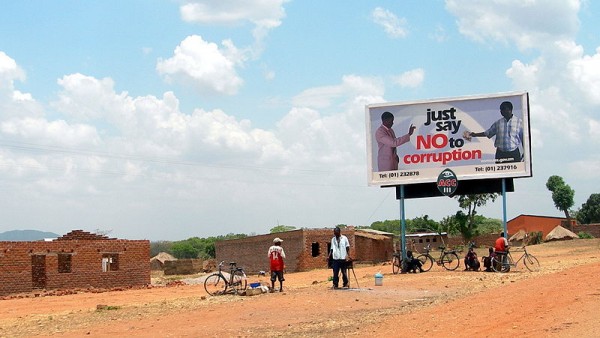By Transparency International*, 6 November 2012 — Amid news of another round of financial scandals, word that the former president of a G8 country has been convicted of tax evasion and growing frustration across the Middle East that new leadership has not meant renewed efforts to stop corruption, it is more and more evident that the battle has to reach its next level.
In Bangkok the 14th International Anti-Corruption Conference pointed the way forward for the anti-corruption movement by empowering and supporting all those who are willing to change the rules of the game. This requires the restoring of trust through frank exchanges, concerted action and results.
In Brasilia the 15th IACC aims to take the struggle to its next level, beginning with the premise of mobilising people against corruption and impunity.
Why this is so important is obvious: The ever-rising cost of corruption shows that deep, long-lasting change is essential, and more importantly, corruption does not deserve a second chance. Our message to the corrupt is clear: impunity will not be tolerated.
Forging a New Anti-corruption Agenda
The 15th IACC opening plenary will bring global leaders from civil society and the public and private sectors together to discuss how to take the fight against corruption to a point of no return. The opening plenary will produce key recommendations for the movement to design the necessary strategies to connect with and support the movements and individuals around the world that are changing the rules of the game.
Delivering the message requires concerted action and will be a focus of discussion throughout the 15th IACC. A special plenary will feature leading experts from national, regional and international institutions who will discuss how their work is helping to set the anti-corruption and transparency agenda into the global agenda.
2012 Human Wrongs Watch
Transparency International,one global movement sharing one vision: a world in which government, business, civil society and the daily lives of people are free of corruption. In 1993, a few individuals decided to take a stance against corruption and created Transparency International. Now present in more than 100 countries, the movement works relentlessly to stir the world’s collective conscience and bring about change. Much remains to be done to stop corruption, but much has also been achieved, including: the creation of international anti-corruption conventions; the prosecution of corrupt leaders and seizures of their illicitly gained riches; national elections won and lost on tackling corruption, companies held accountable for their behaviour both at home and abroad.






